Introduction
What if we told you that your gut and the food you eat play a huge role in your mental health? 🌱
Would you also be surprised to learn that there are up to 500 million neurons that travel from your gut to your brain? 🧠
Since your gut is heavily connected to your brain, it is crucial to feed your body with foods that support your mental health. 🌿
In this week’s vodcast, “triple-threat” Dr. Uma Naidoo who is a Harvard trained Psychiatrist, Professional Chef, and nutrition specialist, shares her food recommendations to address inflammation in the gut and anxiety.
Watch the Interview:
For Season 2’s first episode, you’ll learn:
🥬 The science behind the food-mood connection (which foods are good and bad for your mental health)
🥬 How runaway inflammation travels from your gut to your brain
🥬 The truth about sugar and how it wreaks havoc on your mental health
🥬 How powerful mindfulness activities are when easing the symptoms of anxiety
And so much more!
Additional Resources
To connect with Dr. Uma Naidoo and discover more of her work, you can find her on Instagram, Facebook,Twitter and Get a copy of Dr. Naidoo’s This Is Your Brain On Food. You can also visit her website here.Transcript
Sarah: Hello. And welcome back to the show. Today we're talking to "triple threat," Dr. Uma Naidoo, who is a Harvard-trained psychiatrist, a professional chef, and a nutrition specialist. She's here to tell us all about The Food Mood Connection. And guys, this is an awesome interview. I hope you enjoy it. Let's dive in.
Matt: Dr. Uma Naidoo, we are so excited to have you on our first episode in 2021. So thank you for making the time to be on the show with us.
Dr. Uma Naidoo: Hi Matt and Sarah. It's really great to see you. Thanks for inviting me. Excited to be here.
Matt: You were a total fan favorite during The Gut-Brain Solution. People loved what you had to say, and it's little... it's quite easy to understand when you look at your qualifications. All the work you do at Harvard in Nutritional Psychiatry, which is this amazing emerging field. And we're just super excited to dive deeper into this food mood connection and learn more about it.
Dr. Uma Naidoo: Happy to do it. You know, I love talking about this stuff.
Matt: Awesome. All right, let's kick you off. So let's just start from the basics. So you have a patient that you're seeing and they're struggling to see that connection between their mental health and the food that they're eating. Where do you start with them and how do you explain that to them?
Dr. Uma Naidoo: Absolutely. You know, sometimes I start asking them some very basic questions because quite often people are not putting together how they feel after they eat a meal. They might say to a family member, they might say, "I feel tired or I went and laid down, or I had some brain fog this afternoon," but or "I felt foggy," I should say, but they don't put it together with the food that they eat. And often if I just start asking the questions, I'll start to pick up on symptoms that they've been having for a while, but haven't identified. And what the really cool part is, is they don't really know or haven't thought that it was related to what they're eating in terms of their emotional state. And that to me is always super helpful to break down for people and to talk to them about the gut-brain axis and how it makes an impact.
And as they start to put the pieces together, you really just see kind of the light bulb go off and they realize that, what they're eating is impacting their emotional state and what they could maybe be doing differently. And that's usually a really cool moment.
Matt: Awesome. So what are some of the ways, if we just dive into some specifics, obviously with what we've just been through as a global family with the pandemic, mental health has been critically quite bad for a lot of people. So starting with say anxiety, is there certain foods that people just wouldn't expect that would be potentially triggering their anxiety or making their mental health condition worse?
Dr. Uma Naidoo: Absolutely. So you know, when It comes to anxiety, even though people associate refined and processed sugars, added sugars with type 2 diabetes, or maybe some weight gain, they don't realize that it actually drives anxiety. It really worsens anxiety. And then unfortunately they sometimes think, well, I should give up soda and I'll try a diet soda, or a diet drink. And unfortunately, the artificial sweeteners then start to drive the anxiety. So that becomes sort of a double-edged sword for them, but that there are also the processed vegetable oils, which are often used in fast-food restaurants because they're inexpensive. That's another very pro-inflammatory ingredient that starts to worsen anxiety over time. And then it's the processed, ultra-processed kind of junk foods and fast foods that have a lot of added stabilizers, food colorants, dyes, added sodium, and things like that, that just unfortunately really push our anxiety in the wrong direction. So those are just some of the few to be aware of and maybe limit or cut back on.
And there are others that, you know I'm more about fine-tuning, that things like alcohol, gluten, and coffee, they don't have to be excluded by any means, but certainly tweaking how you respond when you drink a cup of coffee or have a glass of wine. And if those drinks or those beverages really drive your symptoms, then you really have to be careful.
Sarah: Thank you. I'm seeing a common thread obviously in what you've said and in terms of inflammation and its impact on mental health. Could you tell us a little bit about, I guess, a little overview but briefly, if you can, of what inflammation is? Because I know that's a term that's used a lot and I think the actual understanding of that is maybe a bit low. And then why is that so pivotal for our mental health?
Dr. Uma Naidoo: Absolutely. Inflammation is actually, we should understand that it's an important process for our bodies just in normal health. So if you stub your toe or you fall over during a game and you just kind of scratch your knee, there's a healing process the body takes care of. So as that little wound heals and you developed a scab or the little toe stub starts to heal, inflammation has an important process. But we are talking about really when that inflammation goes beyond just the normal initial healing process and continues and becomes more chronic. And this tends to happen certainly in the gut. In when we say we're eating a lot of processed pro-inflammatory oils in our diet, and we're having those foods that I just mentioned. What tends to happen is that we know from research in a 24-hour period, the microbes of which there are about 39-odd trillion microbes in the gut microbiome, the microbiotas we call them, they start to change depending on the food that we eat.
And you may not feel it immediately, but it starts to evolve and change. So I always say to people, if you've made a healthier choice that day, they're going to, the good microbes are going to be doing well. But if you've kind of been going down the junk food, fast food path, then bad microbes are going to be happy that day. You don't feel it immediately, but it starts to set up the basis of inflammation. And I think that there are many other factors that affect the gut. I just want to mention it. Things like stress, hormones, circadian rhythm, poor sleep, immunity, all of these things really get regulated through the gut. But when we look at just nutrition and food in isolation, if we're making unhealthy choices, they basically break down into not-so-great substances in the gut and those not-so-great substances are really creating what are more like toxins. And ultimately, when bad microbes are thriving and overcoming the good microbes, they basically set up the gut for inflammation.
What I like to say to people are two things, one is that gut inflammation is brain inflammation. It may not happen immediately, but it's a feedback to the fact that we know the gut and brain are connected. So when you start to have inflammation there, and I've seen this clinically so many times, people may actually present with mental health symptoms sometimes. And when you trace it back, they've changed their diet or something's happened. And then the other thing I like to say is a happy gut is a happy mood. So if you're taking care of your gut microbes and you're feeding them and you're eating those prebiotic foods and having a probiotic supplement and fermented foods and all the things we hear about like fiber, then they're going to be happy and you're going to feel better overall. So it's important for people to understand that that basis of inflammation is really what we ultimately end up calling dysbiosis, or we call it leaky gut or the clinical term is intestinal permeability, and that's really the setup for problems in the gut.
Matt:Can you dive a little bit further... I just find this whole thing so fascinating and I know I've got like an amazing research mind here. If you can dive specifically as to, you know inflammation's in the gut, is there sort of like a summary of that journey of it reaching the brain? How quickly it reaches the brain and once there is inflammation there? Take us on a little overview of that.
Dr. Uma Naidoo: Sure. So some of how that happens and it does happen sort of slowly and steadily over time. And it does depend on, a person who's usually say assuming a not-so-healthy diet, but basically the gut lining is a single cell layer. It's that thin. And we talk about microscopically. We talk about this thing called a tight junction, which is what holds the cells together. So if you think about how long the gut is, it really has a single cell lining, separating the products of digestion from the breakdown of food, to the circulatory system, which is the blood system. So if you think about, say I ate a healthy salad, breakdown products, and I had all the biodiversity of different veggies in there and the colors that I need for my anti-oxidants and polyphenols, it gets broken down into good substances.
One of those, for example, are short-chain fatty acids. Those actually help our brain. They help our body and as they get broken down and they get transmitted into the circulatory system, it's a good thing. But on the other hand, if I'm eating that fast-food diet, you actually may get breakdown products which are toxic and actually feeding and being produced by the bad microbes in the gut. And when they enter the circulatory system, they actually start to kind of create chaos, right? Because they enter the circulatory system, they are going to get to the brain. They're going to get to other parts of the body. And that's when they start to really cause mayhem. Even if it's in a small way initially, it builds up over time. And that's an important thing for us to understand that it really is accumulative. So you may not feel it immediately, but we know from research and from what we've studied, that it starts to happen when you make those good food choices or the not-so-good food choices.
Matt: Interesting. So how does that then, because I think people understand serotonin for example. So how does that process then impact someone's brain chemistry that they may feel it's either broken or awful, not be understanding that brain chemistry connection to their gut?
Dr. Uma Naidoo: So there are a few different things with the brain chemistry. One is that 90 to 95% of the serotonin receptors are housed in the gut. And there's a lot of production as well in the gut as well as other neurochemicals. Now, the issue in the brain is that when the brain is starting to get inflamed, it's not functioning in the way that it should. It's basically not using the positive neurochemicals in the way that it should. So for example, if a person is prescribed, let's look at it this way if a person is prescribed an anti-depressant, the antidepressant is there to balance the neurochemicals. So often whether this is an accurate explanation or not, doctors will say, "Well, you know, we're trying to treat a chemical imbalance." Well, I won't comment on that, but what I will say is that many people hear it that way.
So it's just an easy way to say that when the brain is inflamed, it basically is out of balance. And it's not using the neurochemicals there that are meant to balance our mood, our anxiety and be part of the chemical messages that are transmitted between the brain and the gut, and the gut and the brain through the vagus nerve. All of that chemical signaling goes off. And I think a nice way to think about it is that we're not getting our neurochemicals, serotonin is often called the happiness hormone, and basically, serotonin is not working in the way that it should for us. And that's where a doctor who's prescribing the prescription is trying to help with the serotonin transportation. To help your mood or say help your mood or lower your anxiety. But of course, they're often used for several other conditions as well.
Sarah: Awesome. Thank you. So we discussed food to avoid for anxiety, mental health. What about the foods that are your go-to foods for your clients wanting to improve their mental health?
Dr. Uma Naidoo: Absolutely. I start off simple because it's really almost building blocks. And what I find, Sarah is that the building blocks are ultimately going to, believe it or not, help their physical health. And even at times help them lose weight. But it really, these are important aspects of the mental health. And usually, I have to link the effects that they have. So let's start with something simple, like prebiotic foods, prebiotic foods are bananas, oats, the allium family, garlic, leeks, onions. And they really feed those microbes in the gut because they're prebiotics and they bring back the big fiber that those microbes need to thrive. And then I talk about, probiotics are usually a supplement. So if you have a good supplement and that's helping you, good idea. But another way to get in those live active cultures is actually through fermented foods and fermented foods are fun. They can be miso, kefir, tempeh, natto, kombucha. So many that people use and have heard about, sauerkraut, pickles.
Those actually bring back some great live active cultures because of the process of fermentation to your gut. So they bring back some sort of friendly bacteria to your gut. So those are some simple things to do, but then it's also building up on your fiber, right? Because I might've said to you before that we worry a lot about how much of protein we're getting, but actually we're very much lacking in fiber in our diets. And the fiber is really from vegetables, fruit, beans, nuts, seeds, healthy whole grains, lentils, legumes and you can't get it from animal and seafood protein. So we've got to get in that cornerstone of vegetables and fruit. My favorite is vegetables because they're pretty low-calorie. You can eat a ton of them and feel quite satiated. They bring back so many different nutrients, vitamins, minerals, but they also bring back antioxidants and the different colors. Biodiversity are known to be good for our gut and those gut microbes. So the biodiversity is important.
The antioxidant, anti-inflammatory effects are important. They interact with those gut microbes. They ultimately are going to work to create those positive substances our gut needs for us to feel emotionally better. So that's one big group. And then I like leafy greens. Leafy greens are sort of understated because people sort of roll their eyes. Oh, why my doctor is saying, I should eat a salad. Well, it turns out that the spinach, the kale, the arugula, the rocket lettuce, I think it's called in some countries, dandelion greens, all these cool greens are very rich in folate. Folate is a huge building block for mood, for example, low folate levels are associated with depression. But it's not only important for us, it's just a great nutrient to go back and it has iron in it.
Again, these are nutrients which our body and brain need. So adding those leafy greens becomes important as well. So as you build these up and then you go to things like Omega-3 fats. So Omega-3 fats, you can get plant-based sources, walnuts, chia seeds, flaxseeds, or you can get Omega-3 from salmon or sardines. You get your Omega-3 fats and Omega-3 fats have actually been shown to help both depression and anxiety. So if you take it as a supplement, or you're taking it through different forms of food. These are great for your overall mental wellbeing. And if you happen to take an Omega-3 supplement, you can also take a vegan supplement. If you don't eat fish, you can get an alcohol supplement, which are really great and people do well with them. So they're just ways to start to have what I consider pillars or building blocks of building your sort of foundation for better mental health and it starts with some of those things. Of course, there are more, but that's a good way to start.
Matt: That was such a cool tour through food. So well summarized. So thank you for saying that.
Sarah: I was following you through the grocery store in my mind.
Matt: I was like, wow. So obviously this is quite... This nutrition mood connection it's very, you wouldn't say a new field, but it's something that science is taking really seriously. Was there some landmark studies that were done that really started to shift your perception or to get academia focusing on really drilling down into food and the mood connection?
Dr. Uma Naidoo: Absolutely. I think that one of the things to point out is that the burgeoning amount of gut-brain research, that's really what I based my book on was the connection between the gut and the brain, and hence the first chapter of my book was called the Gut-Brain Romance. But because doctors who studied say more than two decades ago really were not taught about the gut microbiome because it's really new and emerging science, for example, between 2013 and 2017, there were 13,000 new publications of the gut microbiome and studies related. So, I was very excited about delving into this research and really picking apart the ones that were associated with mental health. And I started there and then went through the different conditions and where the associated studies that looked at human trials that compared say the use of a probiotic to, through yogurt, with live active cultures compared to Prozac, or a study in schizophrenia that was really about transplanting the microbiota from someone with schizophrenia into a germ-free mouse and replicating the symptoms.
You know, I think there's very, very powerful facts in all of this showing us this real connection. And I don't want to overstate the research. There's still continuing research around the gut-brain connection in mental health, but there's a lot of evidence to suggest that we can guide how we eat to improve our mental wellbeing. And that's really where I focused my attention because that's the gap, as I mentioned earlier, that people are missing, that we can tweak this it's at the end of our fork, we have the power to do it. You can be working with your doctor and prescription, but you can always be eating differently. We have to eat meat every day and why not do it in a healthy way. And then there were studies that looked at, many times the Mediterranean diet has been studied, and there were some powerful studies.
The HELFIMED trial, for example, is one I'll point you to, that really showed a connection between how people were using the Mediterranean diet, eating the Mediterranean diet, and improvement in scores of anxiety. So in swirls of mood and actually predominantly mood. But I think that those types of larger studies really taught us that there was this context for the improved mood food connection. And then there were studies like the large database studies out of Harvard, like NHANES that also looked at simple things such as, when people cook their meals at home, which I think really is something we should pay attention to in the pandemic. We consume fewer calories just naturally, and we may not even be following a calorie-restricted diet, but we just eat healthier. And part of that is we sort of know what's going into the food and there might actually be a way in which we are preparing this in a slightly better way than if we went to a restaurant.
So I think that when you put together these different factors and you understand the connection to the gut-brain axis, it becomes a very powerful piece of information to start to share with people. And I don't over-promise people, but I actually have had good success in clinical, in my clinic at Mass General, and in my clinical work with people following through on these different guidances. And how they eat to feel emotionally better and to reduce symptoms, even by simply avoiding foods that they didn't realize were driving symptoms. Surprisingly, even in anxiety, people who really become more cautious about those added and refined sugars will come back and say, "I felt better a few days later after I started to cut back on the candy I was eating" or the sugary doughnut they were having for breakfast or whatever it was.
Matt: Excellent.
Sarah: Awesome. On that last point that you mentioned, the sugar. What is it about sugar that causes it to wreak such havoc on our bodies and particularly our mental health?
Dr. Uma Naidoo: Yeah. I think that we understand that added and refined sugars affect type 2 diabetes and insulin resistance. We've known that. And I think that that's something I know people understand is impactful in that way, but metabolic health in mental health has become crucially important. You know, 88% of Americans have one abnormal value in their metabolic panel. So we are really struggling in the US with how we're eating and how we're doing around our metabolic health, but metabolic health is also driving the worsening of our mental health condition. And that is because of the burgeoning incidence of type 2 diabetes, as well as people being overweight, which has really also been shown up in the pandemic. When you think about sugar, there've been some very important research studies that basically showed that sugar activates the same reward pathways, the dopamine circuits in the brain, which are the same circuits that cocaine is... when you use cocaine that activates the same circuit.
So it helps us understand that there's this addictive quality that it has. There was also a really interesting study in February in a nutrition journal that talked about foods being made in a hyper-palatable way. And when they're made that way, they really become addictive to our psychology, but also to our palate, we just want more of them. For example, I might've told you this before, but fastfood in the US, our French fries have added sugar. And you don't taste it, but they're added in because research and development have shown that they become hyper-palatable. So that's why if you go to a drive-through, you always up-size the French fries, and when you up-size them, you can't put down that bag. You want to finish it. You know you can't, there's a way in which they've been developed that way.
One of the reasons is there's a very subtle level of added sugar in them. So sugar is everywhere. There are upwards of 200 other names for sugar on food labels that people don't realize. My favorite one to quote is brown rice syrup because people associate brown rice with a healthier grain. My doctor said it was better than white Basmati rice, but it's actually from sugar. So it's really helping people identify what to look for on a food label or what to watch out for. And sugar is wreaking havoc not just on our mental health, but on our physical health as well. Unless we somehow find a better way to handle it, it's going to continue because it's really in so many things that we eat.
Matt: Hundred percent and it would make sense, right. You know, back from an evolutionary perspective, we would need to eat all that fruit to make it through winter. But now it's just food companies [crosstalk].
Dr. Uma Naidoo: Or have the energy to... Yes, absolutely. To have the energy to flee from a predator. Absolutely. You need that. But I think what's happened is that the food system has evolved in a way that our palates are somehow, it's a funny thing. I wrote this in an article recently in the US I sort of said, there are many parts of the world where you don't have a doughnut for breakfast. In the UK and probably in Australia as well, a doughnut it's like a pot of high tea or something you have in the afternoon. You don't have it as breakfast. And I sort of said, when did like high teas' foods and cakes and donuts become breakfast? I don't know, but we have a really sweet palate in the US and breakfast foods are very, very sugary.
Matt: Excellent. [crosstalk].
Dr. Uma Naidoo: That's kind of what we've gotten used to.
Sarah: Yeah.
Matt: I know that from my own experience, my own battles with mental health, that I intuitively start learning of this if I'd eat something really sugary and then anxiety would be much worse, racing thoughts and things like that. And then intuitively you start to work out oh, alcohol, sugar. These things can become quite triggering foods, from my own experience.
Dr. Uma Naidoo: They are very triggering foods and good that you recognized it. Not everyone puts the connection together.
Matt: You would hope that I would learn after all these interviews that I got to start making the connection.
Sarah: It is an interesting process learning how to listen to your body. I think we're not really trained to think that way. And you Matt, you used to think I was so weird because I guess I was always so sensitive. I was aware of that connection, but yeah, it's interesting how little we think about how food actually makes us feel. I have a question and it might be a bit of a controversial one, but obviously, in the foods you mentioned before, you were talking about all these foods in particular that really are good for our microbiome, fiber, and all of that. I'm curious to know your thoughts on the Carnivore Diet, which obviously meat you mentioned does not have fiber. I'm curious as to what you think about the impact of the carnivore diet on mental health?
Dr. Uma Naidoo: Sure. So the other thing I really should say when I talk about fiber, because I really am fiber-forward and that I do feel like in the US we're missing, we're counting our protein grams and missing fiber, but there are also conditions as you both well know from the [research] that you've done, that there are conditions like Cibo and IBS and several others that you have to be so careful about the fiber load because it could be very uncomfortable. So I understand that there's some people that, that isn't a general rule for, but coming to your question on the Carnivore Diet. I think that this really goes back to my philosophy around food, which is that I really don't believe in fads or extremes. When people go toward a diet or claim or make a statement that this is the only way to feel better, I feel like it's very polarizing and my patients come in very confused. And they think that they should never look at a vegetable again.
And I know that that may not be the case, but remember that people interpret information based on how they receive it. And sometimes it's the messaging that gets very strong, or sometimes people may not realize there's more to the story than what they initially hear. So I think my issue is more that I don't think we can point-blank say that there's a best diet for mental wellbeing. So whether that is carnivore or vegan for that matter, we can't say that there's one diet that cures mental wellbeing. I think that the evidence is still being studied. Nutritional psychiatry, while we've practiced it for a while, there's a lot of emerging evidence that comes up. So I really cannot wholeheartedly say, you know what carnivore is the way, because I know that that individual is missing out on nutrients that they need.
And it's the same issue that I have with any form of extreme diet that there might be vital nutrients that a person is just missing by not consuming certain types of food. I think in mental health, the plan has to be highly personalized because we know that the gut microbiome is like a thumbprint. And we realize that it has to be tweaked based on that individual's likes, dislikes, foods that they can tolerate, and what they like to eat as well. So I don't really know the evidence to support a carnivore diet in mental health. But I'm sure that there are people who feel that it does, but I feel that it would really be excluding too many, in fact, everything that I mentioned at the early part of this conversation would be excluded. And I don't quite know how that could work.
I think it becomes really important to guide people with mental wellbeing because they're also already vulnerable from kind of walking through life, coping with that heightened feeling of anxiety or panic, or being triggered by sounds or foods, or whatever it is. So when you then impose, well, you can only eat this. I think that makes it too hard. And from that perspective, I'm not a fan.
Sarah: Thank you.
Matt: Thank you. I think it would be a miss for us not to touch on this because considering your background. That's why we love talking to you, you've got such an interesting history of food, but meditation and yoga is something that was part of your life. And we may be entering the front, maybe the edges of science in this part of the conversation. But I think we should just talk about it in terms of that impact of a treatment plan with a patient of yoga, meditation. Can you take us through why those practices can be really effective in treating mental health?
Dr. Uma Naidoo: Absolutely. I think that they're no longer on the edges. In fact, they're quite studied in mainstream literature now. There was a study that was published last year that looked at breathing pranayama yoga, and the impact on both cardiovascular, the cardiovascular system, but then also on depression and anxiety. And I remember we posted about it on Instagram because it showed an improvement. So I feel like that I practice a holistic integrated and functional approach to psychiatry. So part of that is, my grandparents taught me yoga and meditation, and I sort of bring that forward because I feel like it's not just one thing, even though my focus, my research is on the nutritional aspect. You really can't say to someone, or I should frame it this way... You have to remind someone with anxiety disorder to always hydrate because dehydration can present as anxiety.
You always have to remind someone whatever their condition they have to eat regular meals, but I'm not talking about a fasting diet. I'm just talking about regular meals. Because sometimes, people forget to eat and they become hypoglycemic and they can present with a panic attack. I've seen it happen. So I think that it's putting it all together, sleep, hydration, movement, exercise, yoga. And where mindfulness, Matt, really fills a very big space for people, is that if you can use a form of gentle yoga to help ease the anxiety and to really bring down your kind of heightened system, feeling in your body of anxiety to almost center yourself or ground yourself through a movement. Maybe it's qigong, maybe it's yoga, maybe it's a form of meditation that you'd like, it is such a powerful tool that people can lean into. It's hard in the middle of a panic attack to say to someone, "Oh, do this."
But if, as you're coaching them and working with them on a good and comprehensive plan, they're learning these techniques. When it happens and when they are struck by an unfortunate panic attack or feeling of anxiety because they're triggered by something. What you want them to be is in a state of mind where they can tap into the resources where they've learned a breathing exercise. So they've learned to listen to an app on their phone that can listen to say music or something that calms them down or even walk them through a meditation, which helps them. Those things become powerful. So it's really important to use that integrated approach because if someone said, "Oh." Because if you think about it, right, the part of the prescription pad, the way that many, many physicians are expected to practice in the US is, you come in, you have a symptom, here's your prescription. And it really excludes everything else.
So even in mental health, I think all forms of therapy are important, extremely important, along with if you're taking a medication, but so are all of the other components that make up that circle. So I think that if we paid attention to that integrated approach and we really thought of it in a holistic way, I think that people would just have a little kit they're walking around with about 10 tools in there, that they could tap into. And that's what I like about it, because at a given moment in time for mental fitness, you may want to do one thing more than another, but you know that you have them available. And nutrition, of course, is one of them.
Sarah: Wonderful. Thank you.
Matt: Such a powerful message. Thank you. And I think you're definitely contributing to that Swiss-Army-Knife-arm of approach to mental health that we need. And you're doing fantastic work and it's so needed. Your book's amazing. And it has different titles, which makes things fun. [crosstalk].
Sarah: I'm holding the Australian title.
Dr. Uma Naidoo: Yes. And so that's also available in the UK, India, and South Africa. And the one that I'm holding, This Is Your Brain On Food... Got to move it the right way, because I...
Matt: It's like reverse.
Dr. Uma Naidoo: ... So funny. So this is the version in the US. Our cover version in the US and it's also been released in about 15 countries. So, if you're following me on Instagram, we have an infographic of the countries where it's been released, but this will roll out over the course of 2021, and it's in different languages. So, we're excited about that because we have received interest from a lot of people and always want them to know we're trying to get the book to them.
Matt: Awesome. So an amazing book. And just for our audio listeners, you just want to repeat those titles.
Sarah: This Is Your Brain On Food is the US title. And then The Food Mood Connection is the Australian, British, South African version title.
Dr. Uma Naidoo: And India.
Sarah: India, yes.
Matt: So make sure you get that book because I think this, as we've just spoken about, this is an exciting field. We're not talking woo-woo here, we're talking like latest science and it's... And I think so many people that are listening to this would be, or watching would be perhaps thinking of that relative or that friend that they're like, "Oh man, if they just cut this out." So equip yourself, get the book, learn the principles. And then you can be part of that conversation. You can be a bit like Sarah that used to try and make that connection for me before I was like, "Oh yeah." I'd like to have someone from Harvard explain it to me. Okay, I got you.
Sarah: He finally listens. Definitely, I think as far as mental health goes, a lot of us have been a bit sold short on what's possible, what the tools that are available. And I think it's wonderful Dr. Naidoo that you're really adding to that toolbox, as you said. And I think these books are an awesome resource for anyone needing, wanting to make a change with their mental health and their whole body health for that matter.
Dr. Uma Naidoo: Thank you. I appreciate that.
Sarah: Yes. And I know that you've been hustling on your social media, Dr. Naidoo. So I think I actually love your Instagram. I think you're always posting great studies and great applications as to why they're relevant to your listeners. So anyone that wants to that uses The Gram, make sure you give Dr. Naidoo a follow. Her user is Uma. Ah, sorry, what is it? Sorry. I'm about to say it wrong.
Dr. Uma Naidoo: That's okay. It's @D-R-U-M-A-N-A-I-D-O-O right at the bottom of your screen. So it's @DRUMANAIDOO. And thanks for saying that Sarah, we're always interviewing fun people and I talk to chefs and I talk to celebrity chefs and I talk to nutritionists and doctors and fun people. So we love that. Actually, you guys should come talk to me on Instagram. If we can just figure out this time zone, we should do that. That would be awesome.
Matt: Awesome.
Sarah: Why not?
Matt: We'd love that.
Sarah: Thank you so much for joining us. It's been our privilege to have you, and we look forward to seeing you on Instagram.
Dr. Uma Naidoo: Absolutely. I'll see you there. Awesome. Thanks so much for inviting me guys.
Matt: That was awesome.
Sarah: I loved it.
Matt: Yeah. Such a good interview. And it's kicking off 2021 season very well. Let us know what you think in the comments. Are you aware of this food mood connection? How important do you think this is? We'd love to hear from you actually, because we actually think, you really should grab this book because this is a message that we like this world needs to hear.
Sarah: Yeah. Let us know in the comments. What food impacts your mood? If you really think about it. Have you noticed any patterns there? And yeah, I think, as Matt was about to say, and I cut him off, I'm sorry, babe. That this message couldn't be more pertinent for the time that we're in. So yeah. I hope you got a lot out of this call and definitely grab that book.
Matt: Yeah. And so make sure you like, and subscribe. Many of you are not subscribed. Naughty people. And hit that like button to just help get this message out in the algorithm land of YouTube. We need your help.
Sarah: Thank you for your service.Matt:Look, see you guys soon.
Sarah: Bye.






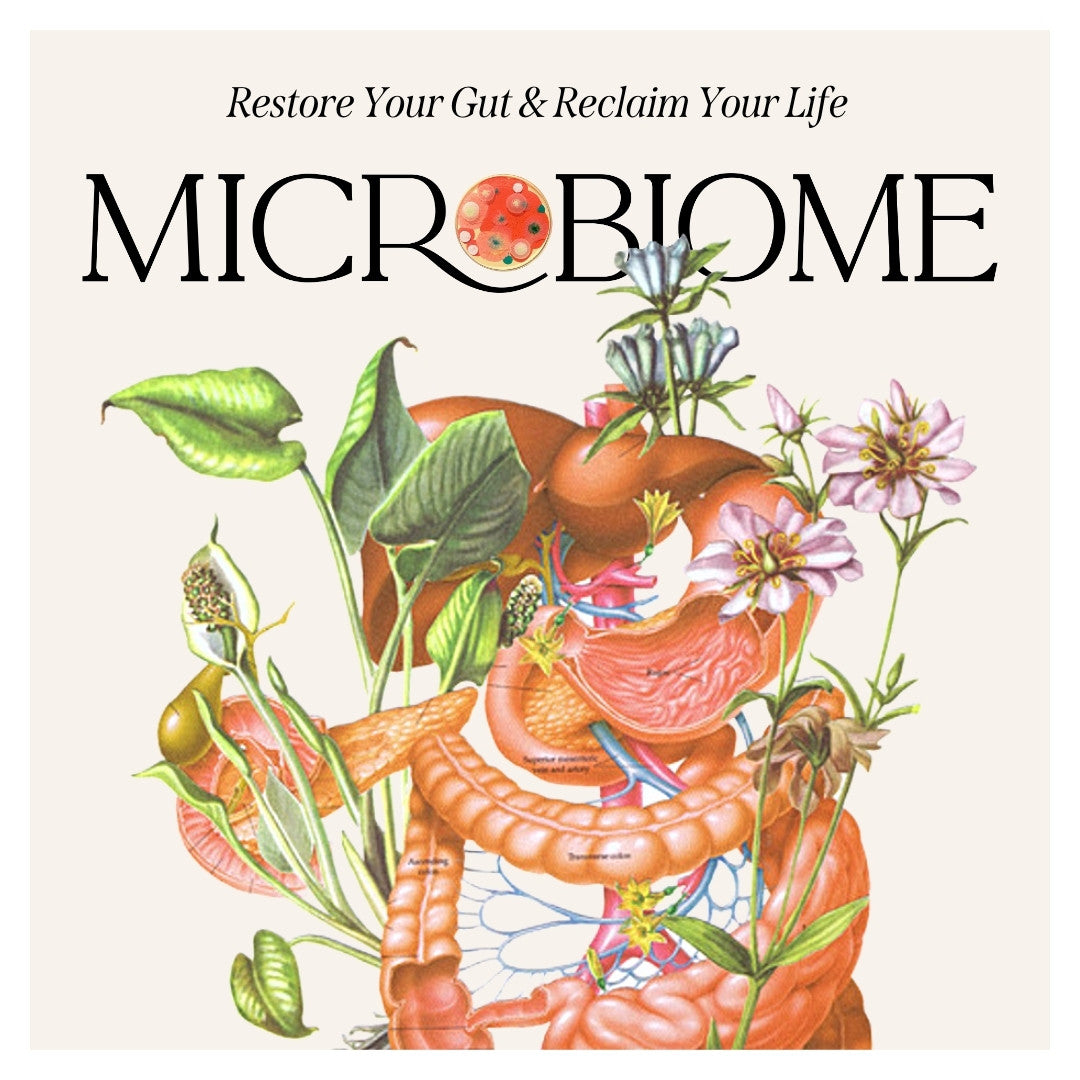

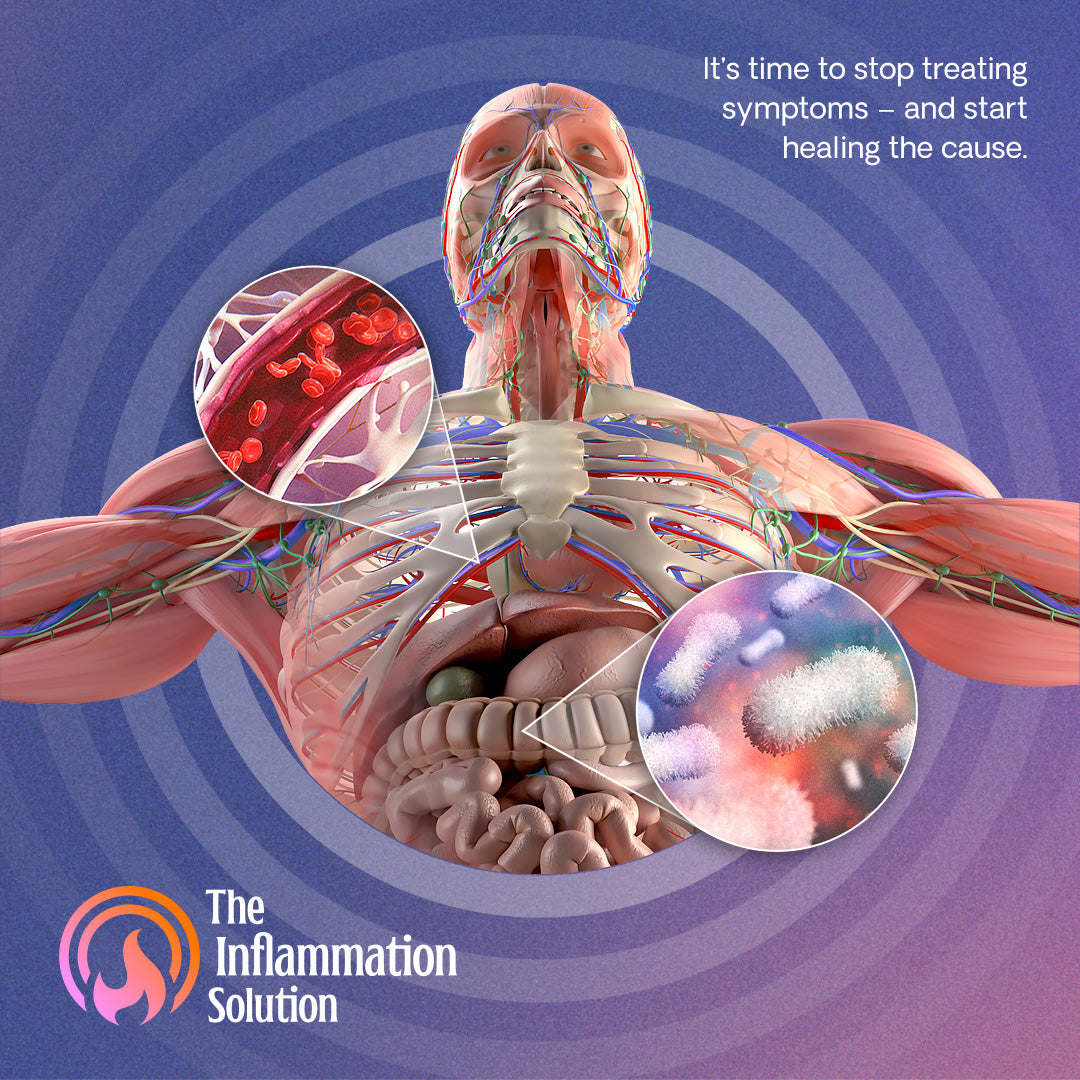
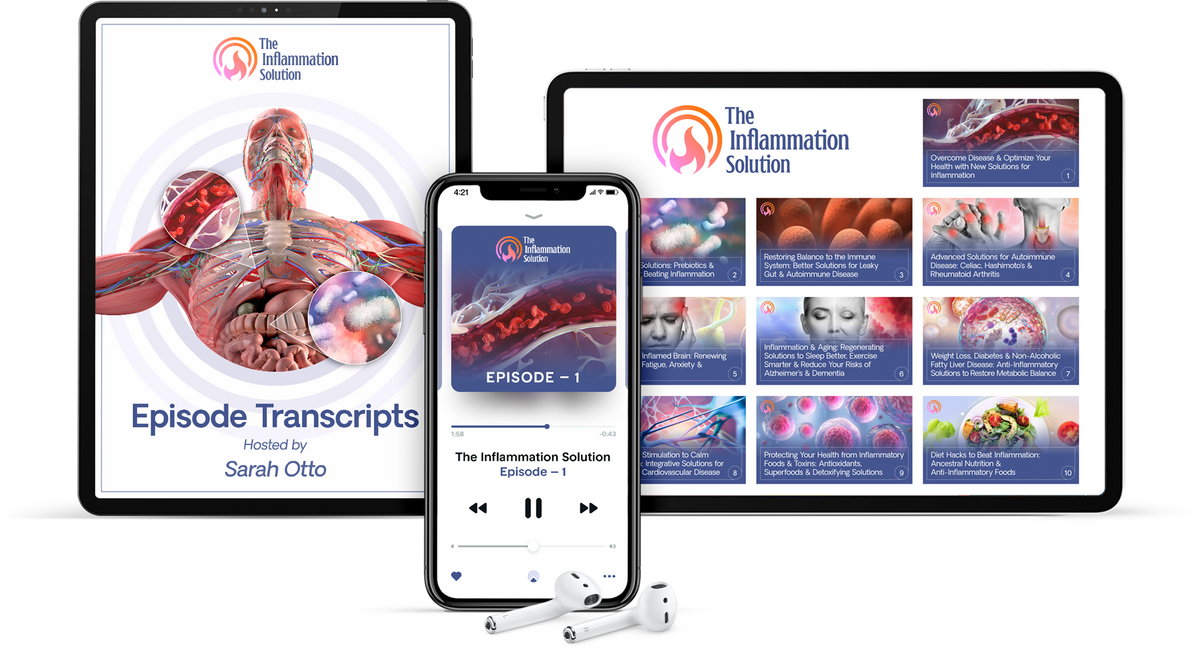
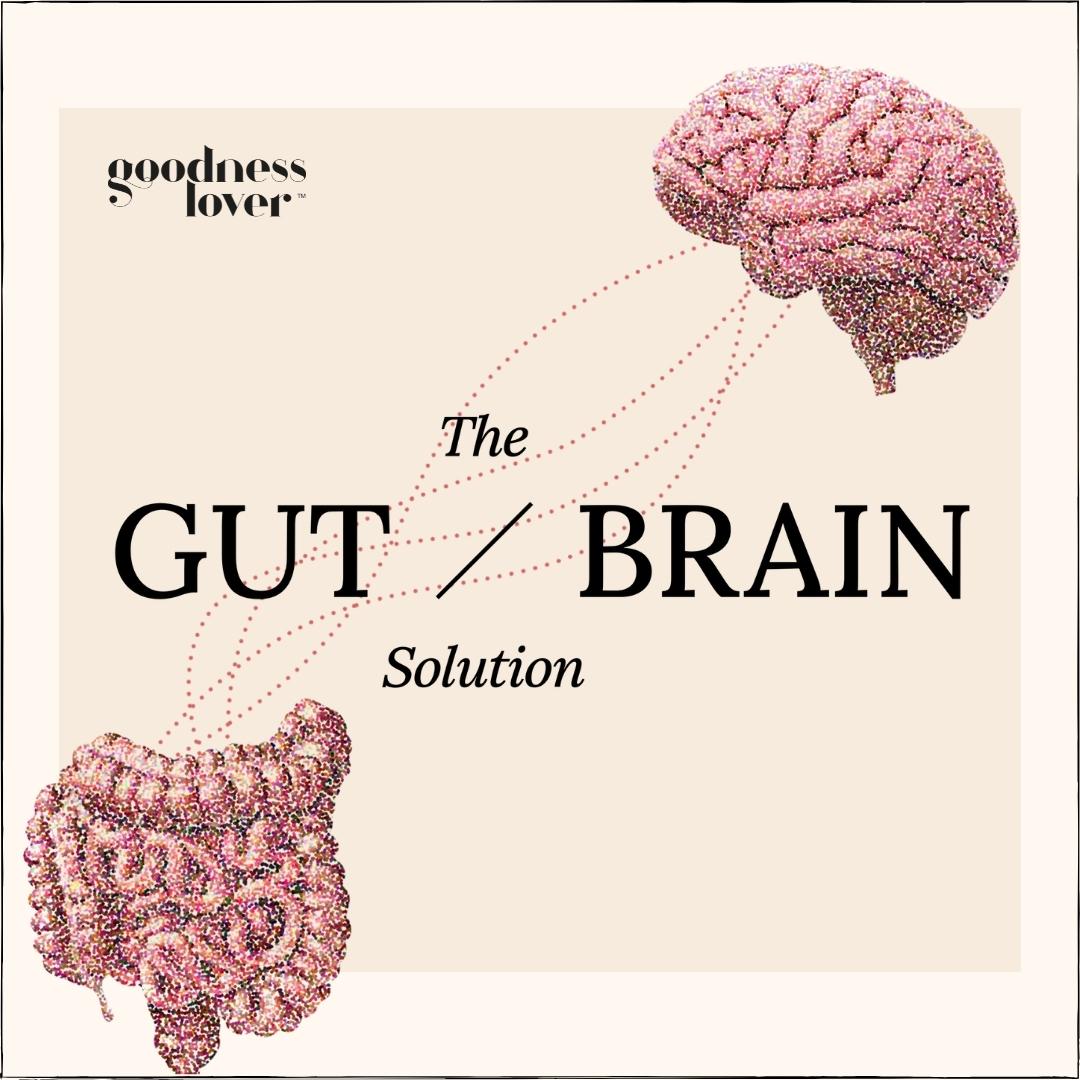

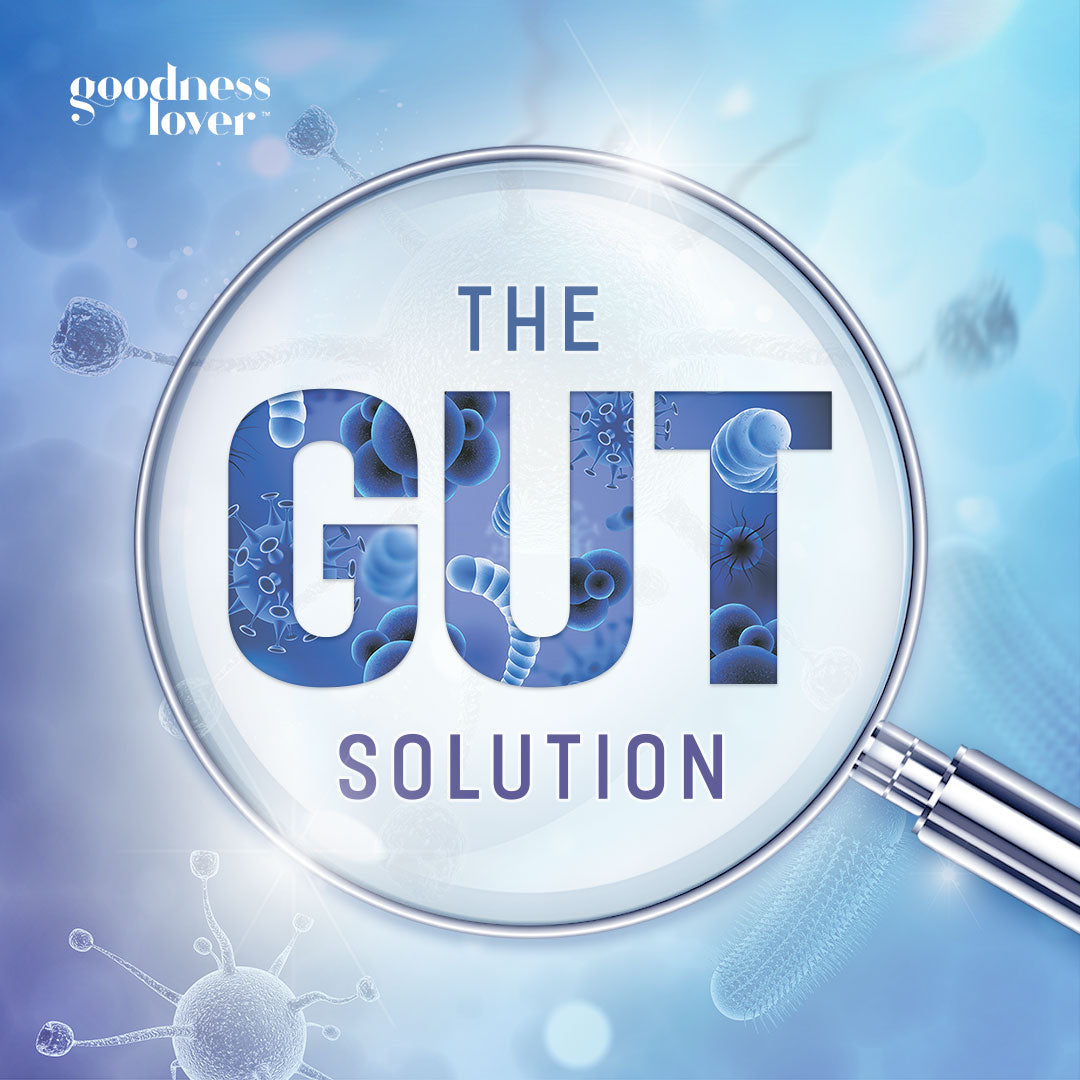
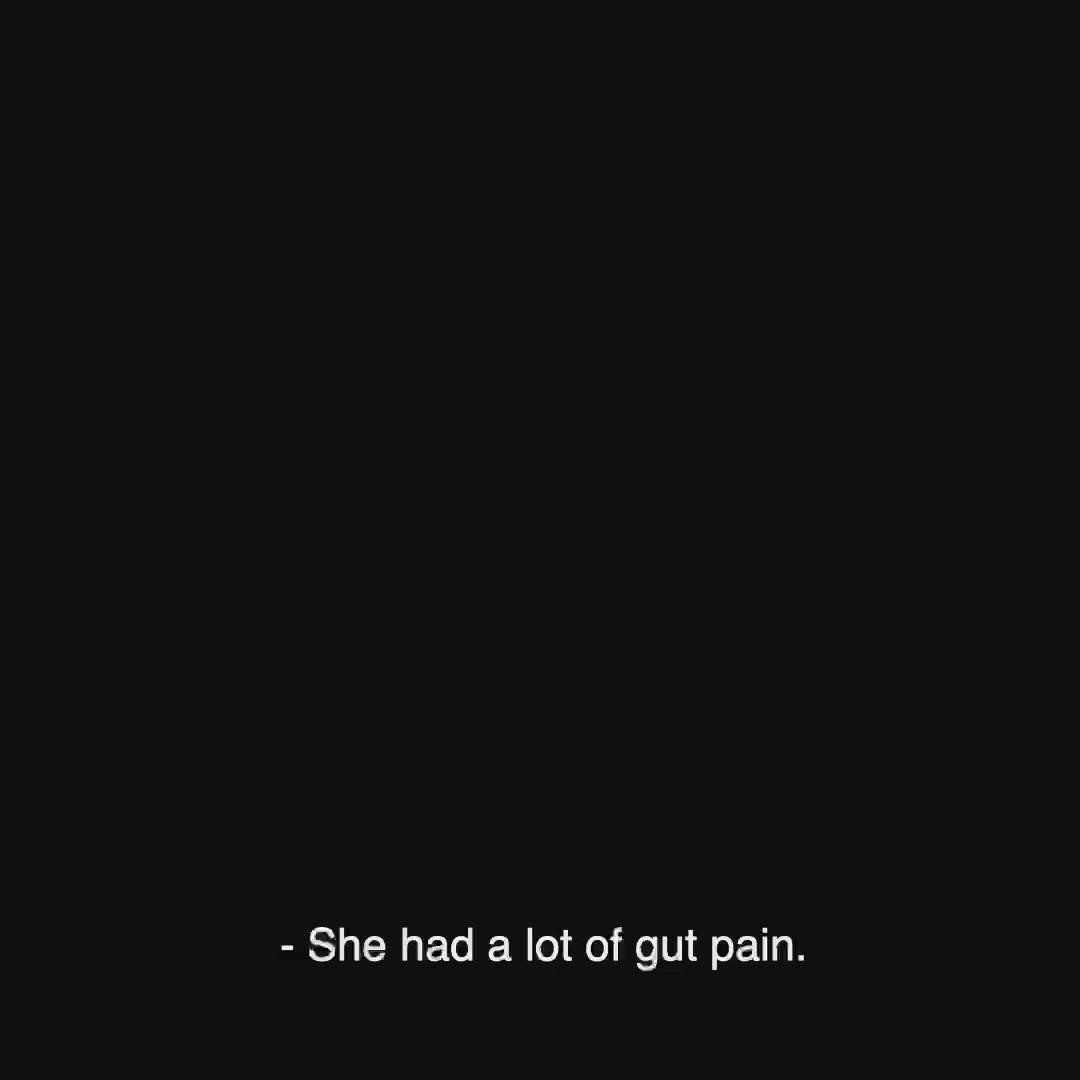
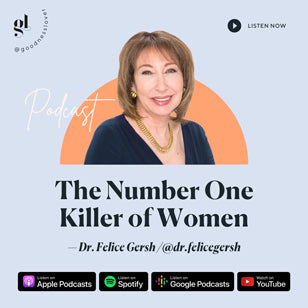
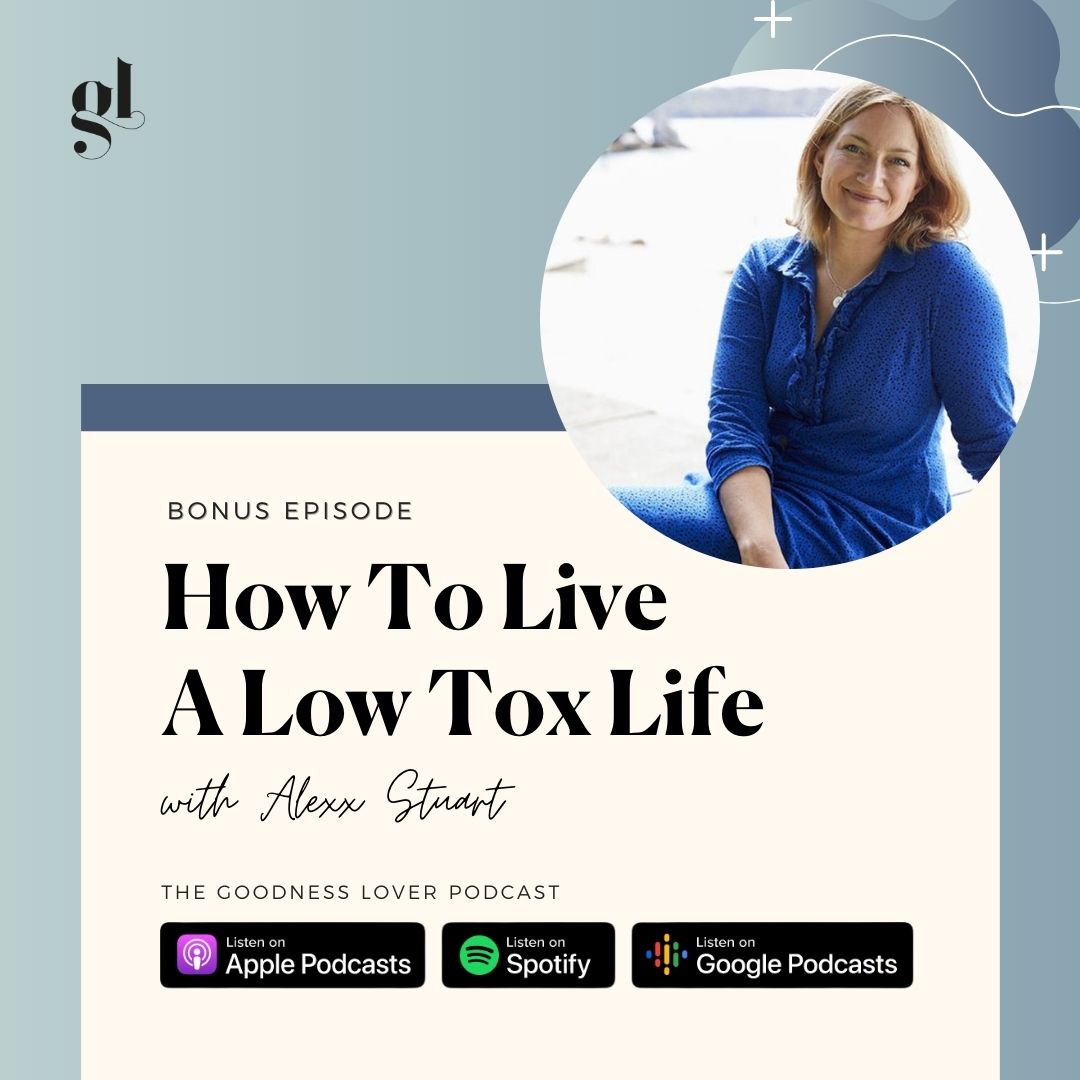

What Do You Think? Comment Below: